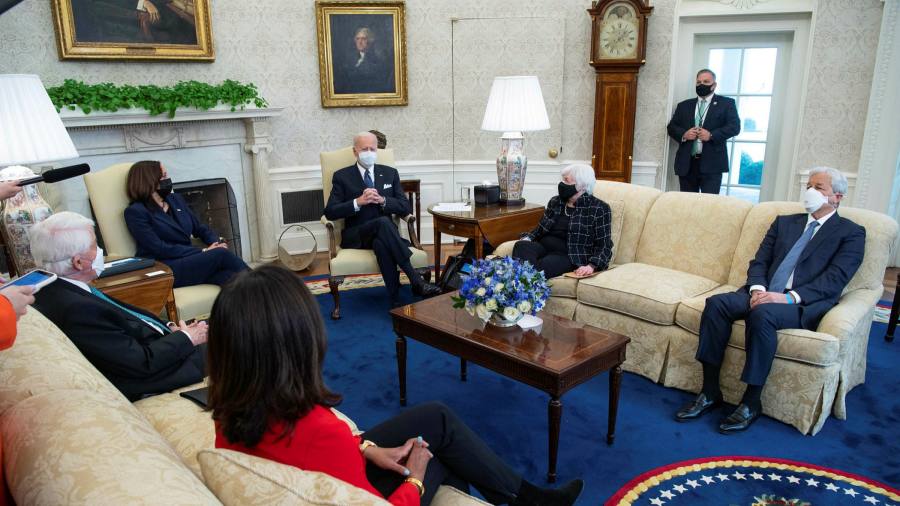[ad_1]
Lyndon B Johnson once reminisced America’s greatest presidents were “remembered best for their successes in human rightsâ€. At the time, in 1968, the US was reeling from race riots and Vietnam war protests.
President Joe Biden has pledged to put human rights back at the core of US foreign policy and vowed to lead “not by the example of our power, but by the power of our example†— with the underlying notion that the world is better when America leads.
Three weeks into his new job, he already has something to show for it. On Monday, Biden sought a symbolic return to the UN human rights council, a group of 47 countries whose own record on the subject is debatable. His administration is also reviewing arm sales, halting US support for the war in Yemen, and will open up US borders to 125,000 refugees, up from 15,000. It has upheld a designation of abuses against Muslim Uighurs in China as “genocide†and decried Russia’s poisoning and jailing of Alexei Navalny.
“Biden is very deliberately rolling back [Donald] Trump’s claims that the United States shouldn’t be commenting on essentially the internal affairs of foreign countries,†said Sarah Snyder, a historian at the American University who studies human rights activism in US foreign policy.
Biden’s pick of Antony Blinken as his top diplomat is also telling: the new US secretary of state is a former board member of Human Rights First — an advocacy group that argues Washington should hold human rights abusers to account.
But Snyder said the administration’s honeymoon with the human rights community will be tested: “I think it’s inevitable that there’ll be some disappointment.â€
First, the US president will need to match actions to words. The US has several punitive tools in its kit, from Global Magnitsky sanctions that target individuals to broader decisions about cutting US aid and military support.Â
Second, in rejoining a liberal global fraternity that Trump loudly eschewed, Biden faces complex choices. His wish to host a democracy summit this year carves out his liberal values in neon, but who should merit an invitation? And how should he balance competing interests, such as his promise to make Saudi Arabia “the pariah that they are†while maintaining military support for the US ally in the Middle East. Likewise, Washington has accused Beijing of “genocide†but also wants to enlist its support on climate change.
Third, he faces accusations the US gives far too little shrift to human rights at home, from racism and sexism to widespread inequality and social injustice, to justify wagging fingers abroad. In its list of 12 foreign policy priorities for Biden, Human Rights Watch made embracing human rights at home its number one recommendation, calling for it to be “a key tenet of US foreign policyâ€.
The US has never even ratified treaties that other countries take for granted, such as two UN conventions on the rights of children and women. The Senate is unlikely to offer the two-thirds majority such steps would require.
“The political realities are that those treaties will not be able to be ratified and . . . we can’t change the political system; it’s written in the Constitution,†said Mary Curtin, a former foreign service officer who is now diplomat-in-residence at Humphrey School of Public Affairs at the University of Minnesota. “US diplomats . . . are put in a difficult situation of explaining those realities to our friends overseas.â€
Nor is the US a member of the International Criminal Court, whose prosecutors are now investigating allegations of US atrocities in Afghanistan. Biden will review Trump-era sanctions against court staff, but opposes the ICC’s actions.
Any decision to prioritise human rights risks hypocrisy. Even the most liberal of US presidents tripped up. Barack Obama pursued drone warfare that killed civilians. He also promised to close Guantánamo as one of his first acts in office. Twelve years later, it is still going. Biden has his work cut out if he wants to be remembered for his tangible successes.
[ad_2]
Source link





